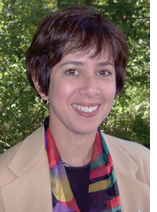
WASHINGTON, D.C. –President Obama dragged out some really dated stereotypes while demeaning both Jews and Israelis in an interview with Israel’s Channel 2 Television. Confronted with the “anxiety” (as the reporter put it) that some Israelis feel about his relationship toward Israel, Mr. Obama bluntly blamed the Jews:
He continued:
Would someone please tell the President that in the 21st Century the “some of my best friends are Jewish” line is offensive? And, in this case, inconsistent. Before the election, the President’s people demanded that no one associate the candidate with the vicious anti-Semitism, anti-Americanism and anti-Israelism of his longtime pastor and spiritual mentor Jeremiah Wright, in whose church then-Senator Obama sat. If nothing of Wright rubbed off on him in 25 years, how did those sneaky Jews do it?
Speaking of irony, here’s one. After claiming closeness to the American Jewish community vicariously – through the Jewish commitment to the American Civil Rights Movement of which he was not a part and because he has Jewish friends and, after claiming that, “My closeness to the Jewish American community was probably what propelled me to the U.S. Senate,” Mr. Obama opines:
More than 76 percent of the Jewish electorate voted for him. Does he think they didn’t know his name was Hussein? Does he think Jews are easily swayed, or stupid? He continued:
It is blatantly stereotypical to say that Israel or American Jews understand either the “Muslim community” or the Middle Eastern “Muslim world” as a monolith deserving of a “friend of my enemy is my enemy” approach. A slur like that makes people “anxious,” first because is grants no nuance to Israel and Jews, and second because if the President of the United States sees the region as a zero-sum game with Jews and Israel on one side and Arabs and Muslims on the other, it will be almost impossible to address the region’s real problems.
And they are legion and have little to do with Jews.
The Middle East is split by Arab/Persian/Ottoman rivalries, by the Sunni/Shiite rivalry, by radical/traditional regime rivalries, the Syrian/Lebanese rift, the Hashemite/Palestinian divide and the Hamas/Fatah civil war. The Middle East is endangered by Iran’s determination to have nuclear weapons capability, the Muslim Brotherhood’s determination to have Cairo after Mubarak, the minority Alawite determination not to lose the regime in Syria for fear of death by the Sunni majority, Hezbollah’s determination to control Lebanon, and Iran’s determination to have hegemony in Iraq, Afghanistan and the Persian Gulf.
But here’s what really produces anxiety in some people, including us: In response to a question about being president, Mr. Obama said:
Nice words, but the anonymity was cynically calculated. JINSA wrote at the time:
It is the disconnect between words, attitudes, facts and policies that makes a lot of people – not just Jews, not just Israelis – anxious.
*
Bryen is senior director of security policy of the Jewish Institute for National Security Affairs. Her column is sponsored by Waxie Sanitary Supply in memory of Morris Wax, longtime JINSA supporter and national board member.